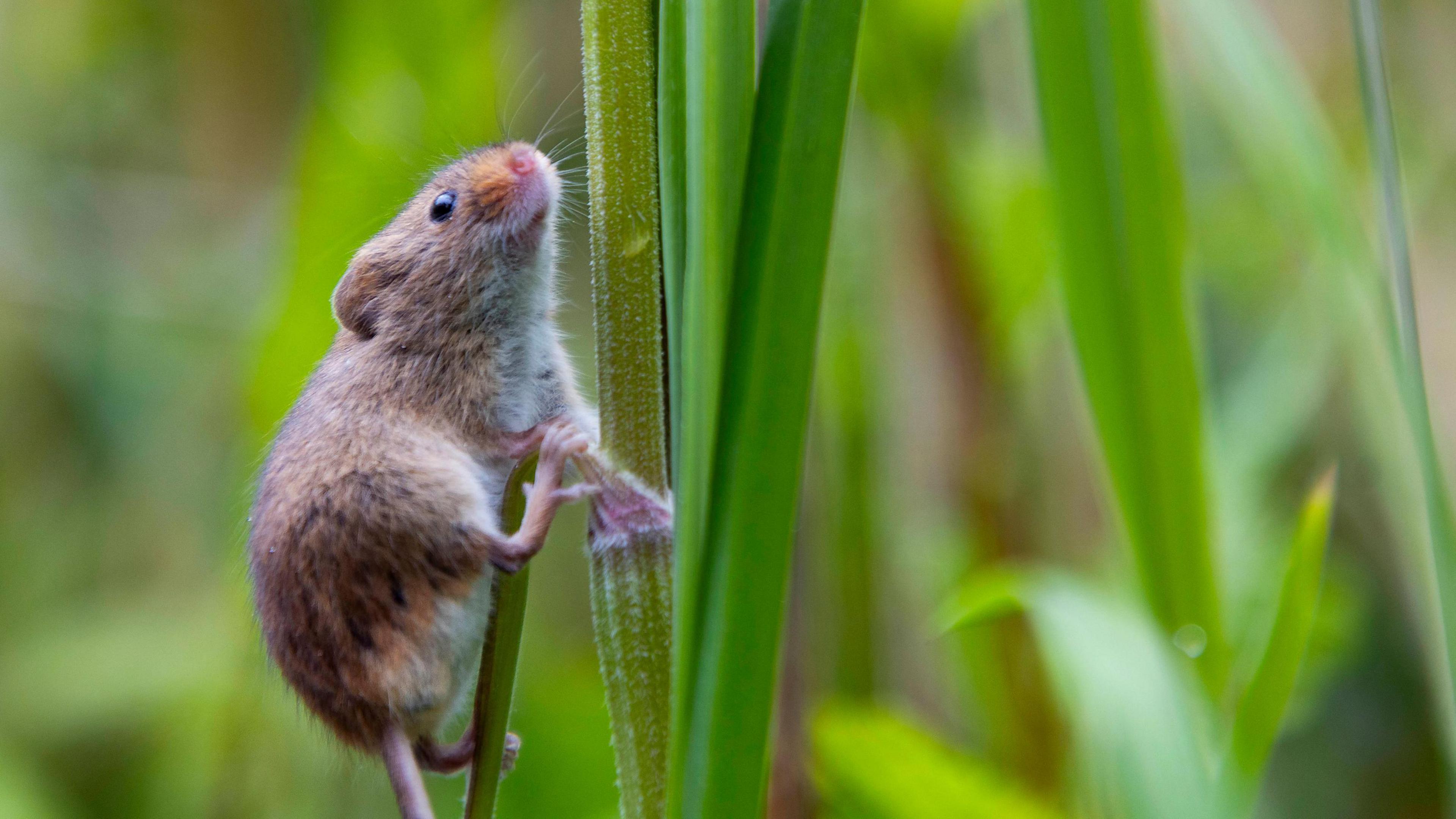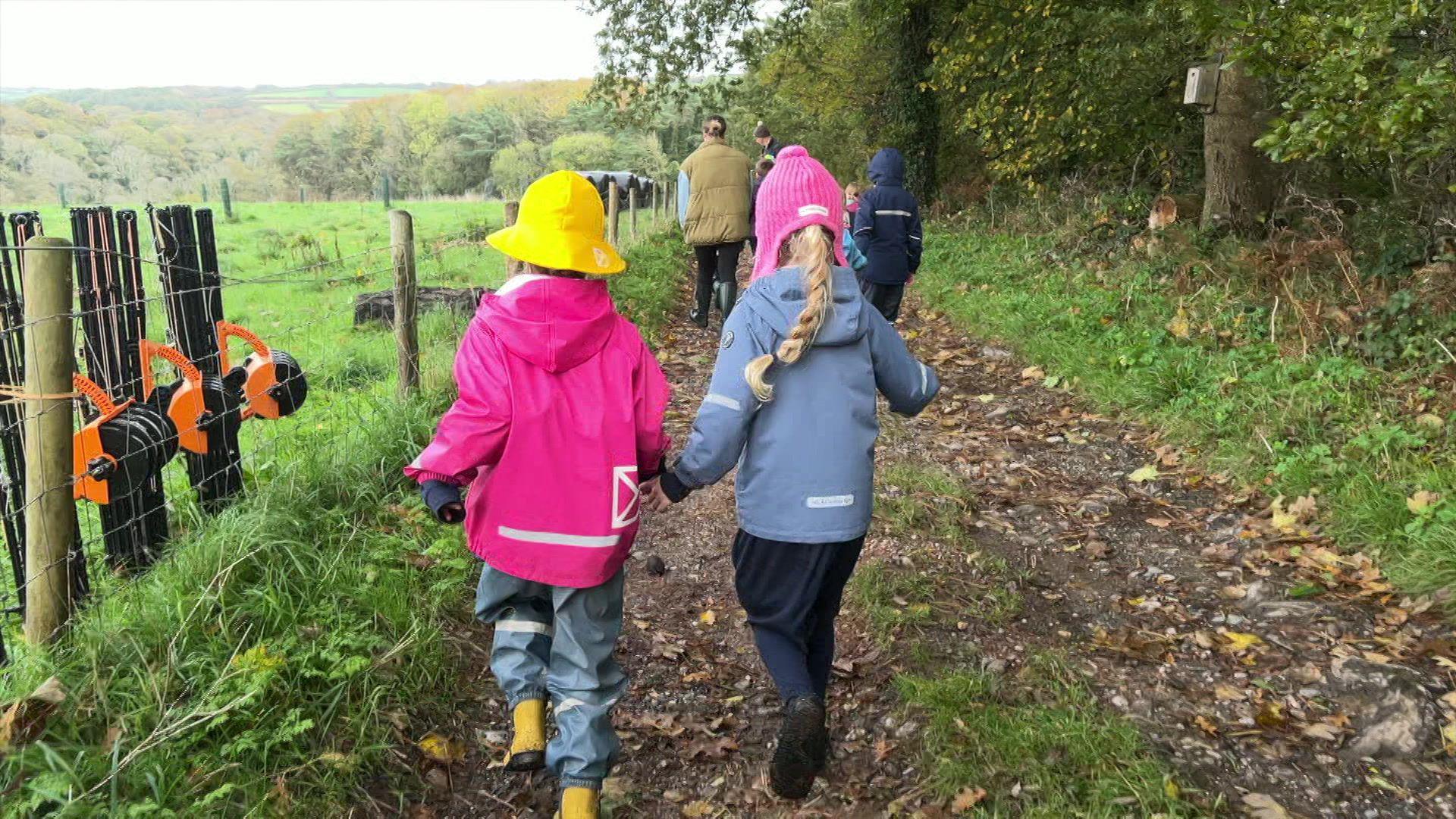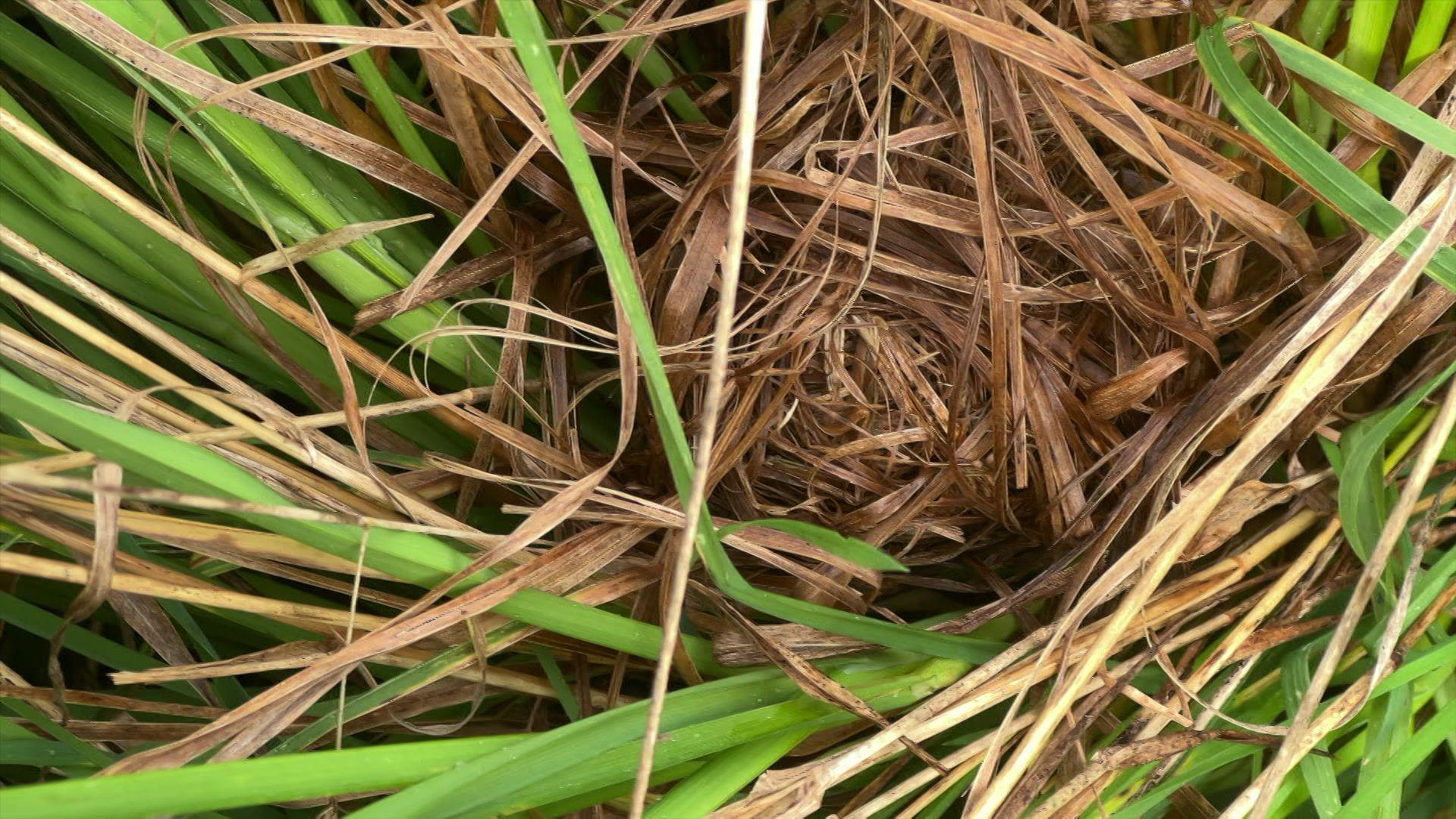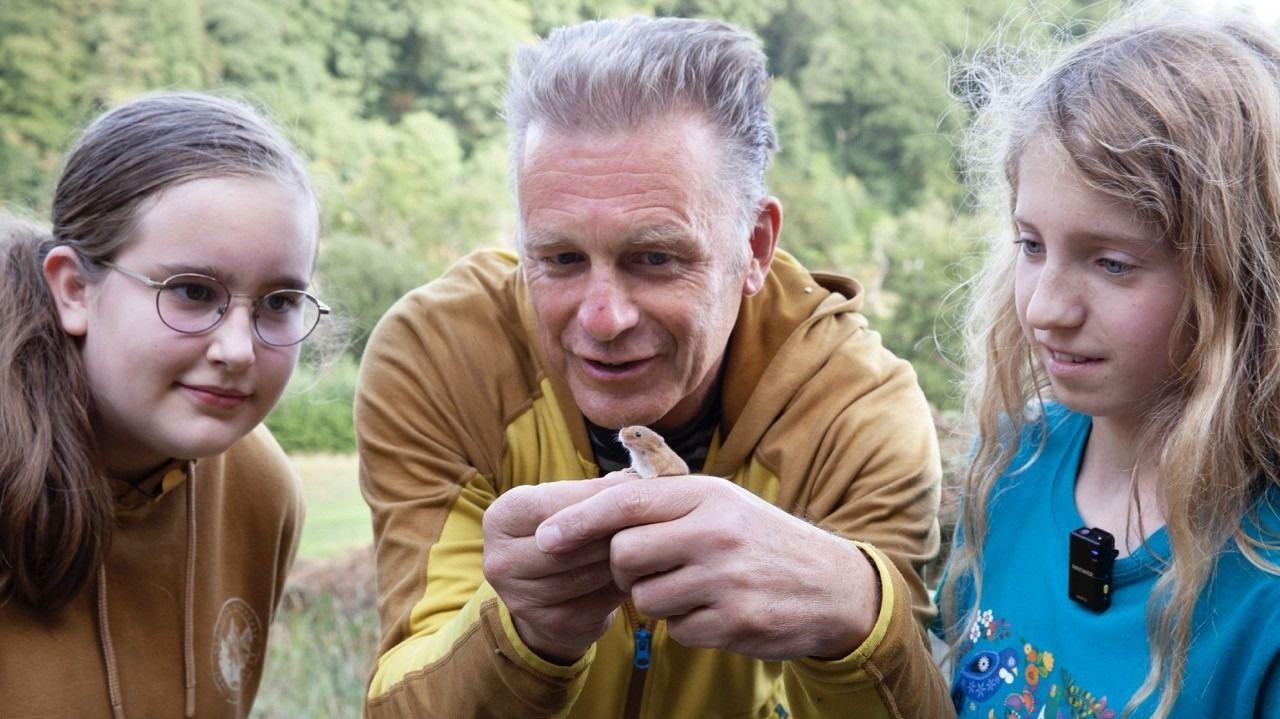Children help count number of harvest mice nests

Children have been taking part in a national survey recording harvest mice
- Published
Children have been taking part in a survey to record the number of harvest mice nests in the countryside.
Pupils from Holbeton Primary School in Devon visited fields near Mothecombe beach to search for the nests of Britain's smallest rodents.
Two of the students, Viola and Alice, described the nests as grass and hay in a "little ball" with a hole in the middle for the "harvest mice to get in and out".
Harvest mouse project manager Sarah Butcher said the children found 17 nests during their hunt which was the most she had found this year.

Sarah Butcher said the school found 17 nests in one day
Ms Butcher said: "Nests are nice and easy to find in comparison to the mice.
"Altogether we found 17 nests which is a record not just for this site but it's the most I've found this year."
The National Harvest Mouse Survey, run by the Mammal Society, runs from October 2025 to March 2026.
The charity said the survey would be used to build awareness of the importance of the harvest mouse and encourage volunteers to get involved.

People are being encouraged to take part in the National Harvest Mouse Survey through the winter
It said surveying the nests in the winter would not disturb the harvest mice because they were no longer occupied.
Afrika Priestley, the charity's data and research officer, said every record submitted helped build a clearer picture of harvest mouse distribution and the habitats they relied on, which was "vital" for their conservation.
Farmer Joe Clarke, who owns the fields at Mothecombe, said getting people on the farm helped them learn about how agriculture interacted and mixed with wildlife.
"We know that we need these spaces for nature across the farmland to link it all up in order for wildlife to have a chance to stop declining and to thrive. That's really important," he said.
Follow BBC Devon on X, external, Facebook, external and Instagram, external. Send your story ideas to spotlight@bbc.co.uk, external.
Related internet links
- Published23 September

- Published2 September
